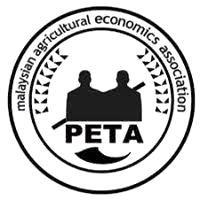Assessing Household Willingness to Pay for Compost Attributes from Food Waste
Household Willingness to Pay for Compost Attributes from Food Waste
DOI:
https://doi.org/10.36877/mjae.a0000606Abstract
The production of solid waste continues to increase, and food waste is the most significant portion of solid waste. Given its negative impact on the environment, food waste has received attention and concern from many parties. This is because food waste increases costs associated with managing food waste in Malaysia and the emission of greenhouse gases that contribute to global warming. Compared to other solid trash, food waste has a low recycling percentage rate. Converting food waste into compost could be one of the solutions to reduce the generation of solid waste. To ensure that the compost made from food waste is marketable, it is essential to determine the household’s willingness to pay (WTP) and its determinants. Therefore, this study aims to determine the households’ WTP for compost attributes from food waste and to identify socio-demographic factors that can influence households’ WTP for compost attributes. The data was collected among the households in Klang Valley, Malaysia, using a purposive sampling method, and 201 respondents completed the survey. A discrete choice experiment determined the households’ WTP for compost attributes from food waste. The results suggested that the households would pay more for certified compost than uncertified compost. The findings also indicated that households' WTP for compost attributes from food waste varied by gender and income level. Since the households were willing to pay more for compost attributes, this suggests that this product can be marketed, and this can be translated into business opportunities if the producers or marketers can respond to the demand of the households. The findings from this study can be used to design appropriate marketing strategies to promote compost from food waste.

.png)

.jpg)
